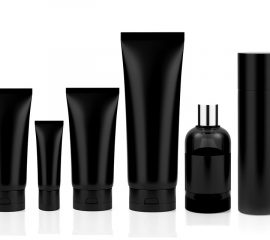
What Should You Ask Your Business Provider?
Liability Insurance should be considered for any business that comes into contact with members of the public as part of their business who are not employees. Liability Insurance protects your business against situations where it is shown that your business dealings may have resulted in damages to a person or a property. A public liability policy will vary for each business and each insurer, however as a standard policy they should cover you for any injuries that are received by the public or a client on your premises. While Liability Insurance is an expense to your business, it can definitely save your business from unforeseen devastating financial expenses.
Let’s say you have a courier business. You will likely be managing a fleet full of large box trucks that conduct the transport of goods to their respective destinations daily. Anything could happen during those commutes – accidents, theft, fire, and more – and perhaps through no fault of your employees. To protect your drivers and the business, you would benefit from insurance for box trucks from OTTIS Insurance or similar firms, which would likely cover all kinds of liability insurance that a company from your industry needs. This would be helpful in case there are public claims for damaged goods or property. Similarly, if you own a hospital, you would require policies like professional liability insurance that can protect you in case of medical malpractice claims, or cyber liability insurance for cases of data leak. While Liability Insurance is an expense to your business, it can save your business from unforeseen devastating financial expenses.
Navigating the complexities of insurance can be daunting, especially for businesses managing intricate supply chains. This is where the advantages of partnering with a third-party logistics (3PL) company become evident. By outsourcing logistics functions to a specialized service provider like those found at sites like https://www.shapefulfilment.com/industries/fashion-fulfilment/ (and similar others), businesses not only streamline their operations but also benefit from the 3PL’s expertise in risk management and compliance. This strategic collaboration not only enhances efficiency but also ensures comprehensive protection, as 3PLs often carry their own liability insurance, further fortifying the resilience of businesses in an ever-evolving marketplace.
While public liability insurance is not a legal requirement, it is considered essential among business owners, and in certain businesses, you may find it impossible to trade without it as clients may have a requirement for a minimum level of insurance before you carry out work for them. Having public liability insurance is generally regarded as good practice, and in the long run, it can protect you if any accidents do occur when they are claimed against you and your business.
Public Liability Insurance v. Professional Liability Insurance
When engaging with a business provider, it’s essential to understand the distinction between public liability insurance and professional liability insurance. Public liability insurance primarily covers incidents where third parties (such as customers or visitors) suffer injuries or property damage on your business premises. On the other hand, professional liability insurance, often referred to as Errors and Omissions (E&O) insurance, is designed to protect your business from claims related to professional errors, negligence, or omissions in your services or advice. While both are crucial, the specific coverage you require depends on your business type and the nature of the services you provide. To determine your E&O need, it’s advisable to discuss your business operations with your insurance provider to ensure you have the right coverage in place for your unique risks and responsibilities.
Will You Have Adequate Insurance?
There are a lot of businesses that are insured and this is a major issue as it puts the business at the point of risk even when having insurance in place – When choosing a provider you need to be patient and choose an insurer that will weigh out your business’ financial worries and provide an adequate amount of cover that practices good measure rather than a policy that is put into place just for the sake of having insurance.
Experience – How Much Do They Have?
Experience can give you some idea about the insurance provider, if they are a new provider they will be very eager to get you started and will offer help and support right away. You should ask to see references and testimonials to see if past and present clients are happy and satisfied with the service that they are receiving, along with this you should also check the internet to see if there are any negative reviews for the business.
Finding the perfect insurance provider might not be an easy task, but if you ask the right questions and do your research then you are taking a step in the right direction. A company like www.bollington.com will tailor a policy to suit your specific business needs. For something as important as liability insurance you want a reputable insurer that will offer you the best possible service rather than a cheap bare minimum policy.
Finding an insurer may take time, effort, and cost however it could save you money in the long run.






